UPSL’s Commissioner Yan Skwara on Making It Work – Creating Real Sustainability & Retention
The UPSL is the fastest growing adult soccer league in America. Yan Skwara, the league’s Commissioner, and Leonel Lopez, founder and President have built a vibrant men’s soccer league. Why does it work so well and how did it grow to 300+ teams in four short years? We asked Yan Skwara what the UPSL differently.
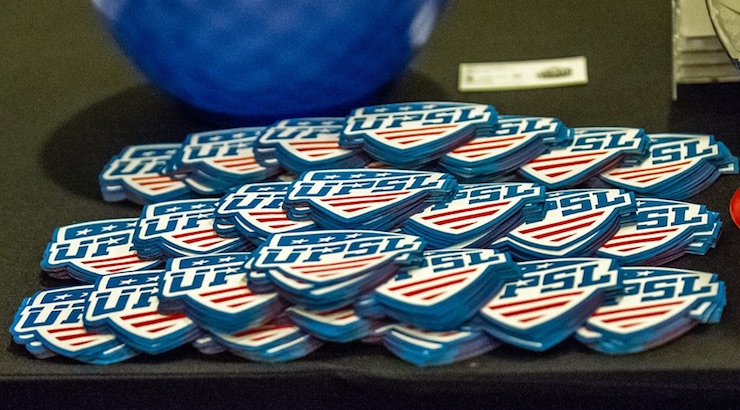
The United Premier Soccer League (UPSL) has changed the landscape of men’s soccer. Without concern for the status quo, the UPSL has pushed the concept of affordability, Promotion & Relegation and creating a unique pathway for players who want to make an impact on the pitch. With teams across America, the UPSL provides an opportunity for many to field a team and to play who otherwise could not.
SoccerToday’s Interview with Yan Skwara
Diane Scavuzzo: When did you join the UPSL?
Yan Skwara: I was invited to join as league Commissioner by UPSL founder Leonel Lopez in 2014 when the league had only 10 teams.
Diane Scavuzzo: How many teams are in the league as you enter the 2019 season?
Yan Skwara: The UPSL has 300 plus teams entering the 2019 spring season. The UPSL is set up as a multiple tier division with a promotion-relegation model similar to global FIFA standards.
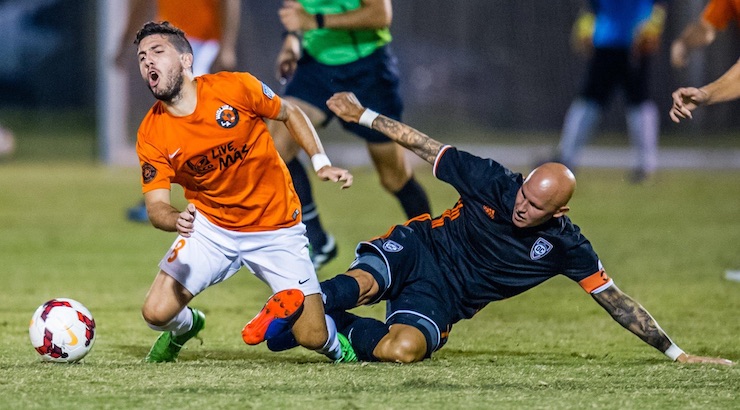 Diane Scavuzzo: What do you account for this success? Why have you been able to accomplish this?
Diane Scavuzzo: What do you account for this success? Why have you been able to accomplish this?
Yan Skwara: You have to have an eye for the game and an eye for the business — I’m blessed to be involved in the game for over forty years as a player and on the business side. I give a lot of credit to my playing days overseas in Europe during the 80s when I was exposed to promotion-relegation and to a much longer soccer playing calendar than in the states.
Diane Scavuzzo: What did playing in Europe in the 80s teach you?
Yan Skwara: There’s a different playing mentality overall — starting from the youth level all the way up to a young adult player. Also in Europe, the league system is tiered, which separates the top teams from teams in the lower divisions — and provides the opportunity for advancement.
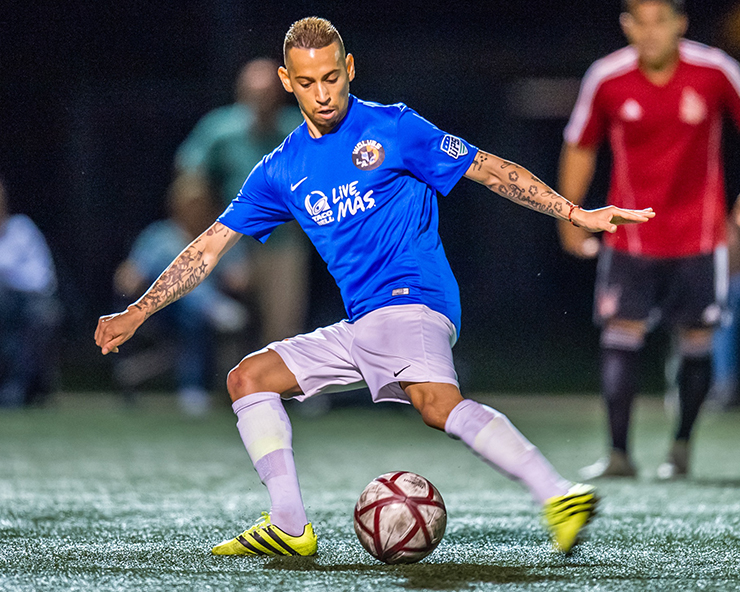
Diane Scavuzzo: What has been the biggest challenge, expanding to 300 teams?
Yan Skwara: The biggest challenge is probably team travel as the USA is a large playing landscape to cover and if teams have to travel long distances, then team budgets increase. We have had to work hard to identify the right teams and clubs in regions across the US that have geographical proximity to one another so we can eliminate the distances so we can keep budgets in line.
Diane Scavuzzo: What makes the UPSL so sustainable?
Yan Skwara: Certainly being a cost-effective league is key but I really believe is key is the member support that we strive to provide to our UPSL members.
A big part of our business model is supporting our teams from a business perspective. Our league office is open year round, every day from 9-5. We have a dedicated quality staff available to our members five days a week — supporting our clubs in multiple areas of business including marketing and sponsorship, which is a big part of the failure or success of a club.

Perhaps this is why we have had excellent retention. Our teams keep coming back, year after year after year, so we have experienced less than 20% turnover.
Diane Scavuzzo: Can you explain how you support your teams?
Yan Skwara: As commissioner, I believe it is critical to provide the tools necessary so our member clubs can raise the necessary funds to fund team operations. We have a sponsorship/marketing department that is dedicated to developing sponsorship kits and building out team websites that offer eCommerce solutions in order to increase top-line revenue.
We have a sponsorship department that actually creates sponsorship kits.
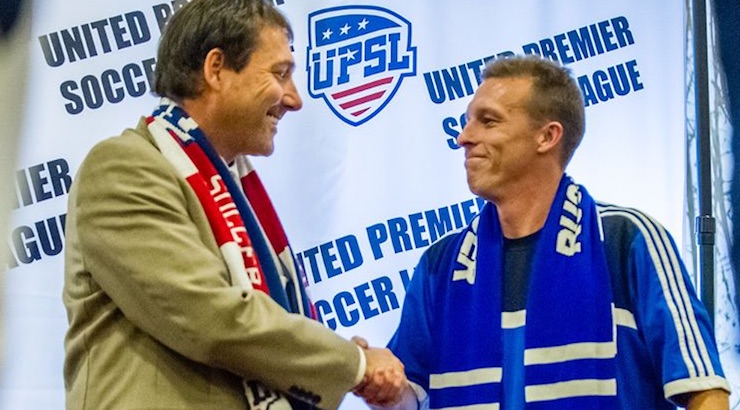
Diane Scavuzzo: So, if you have a team that’s joining you in Florida, and they think they can get a local company to sponsor them, they can give you the name of the potential sponsor and you’ll create a personalized sponsorship kit with their club logo on it for them to give out?
Yan Skwara: Yes. We support our members on the spot and create tailor-made, customized kits for our teams. Often soccer clubs at the amateur level do not have all the tools needed to be turnkey when the join a league.
We provide those tools — so that they can be effective immediately instead of having the teams wait a year or two before they have the time and ability to create professional sponsorship kits. By then, it may be too late.
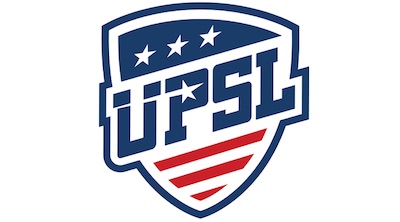
Diane Scavuzzo: So the UPSL will create sponsorship kits for their clubs?
Yan Skwara: We create sponsorship packages, we advise, and we demonstrate to clubs teams how to grow and how to build their soccer business. Some of our members are very good at what they do and don’t need any support but the majority of members often take advantage of the free services we provide.
Growing a league is not just about creating gaming schedules and telling clubs how to figure out the rest. We accomplish more as a unit than all being different teams.
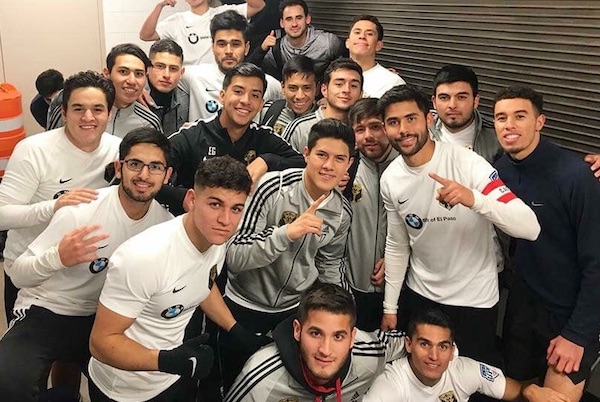
Diane Scavuzzo: New clubs often believe ticket sales will generate significant revenue and then run out of money. What percentage do you think ticket revenue should be of the entire budget?
Yan Skwara: 10-25% would be a good landing spot in the beginning.
Read: UPSL’S YAN SKWARA ON BRINGING PRO REL TO THE AMERICAN GAME
Have a team in any league today is a soccer business. Teams need to treat their clubs as a business and that is the one major point that we try to drive home, day in and day out.
You need to be putting in just as much attention off the field than you are on the field.
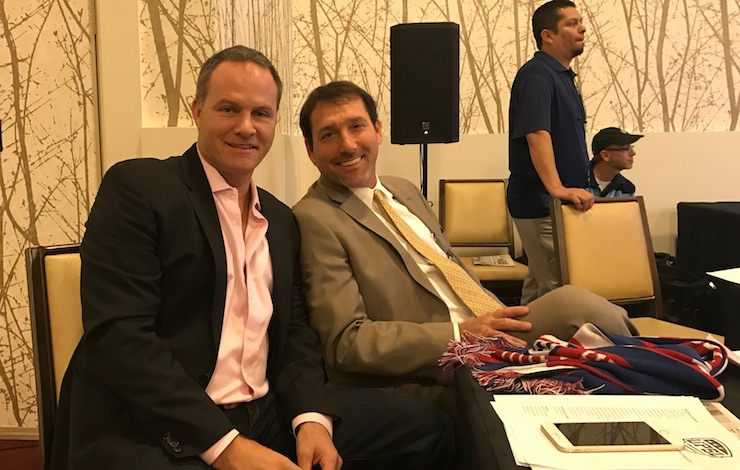
Diane Scavuzzo: Can you give us three issues that are often ignored by young teams?
Yan Skwara: Yes. Lack of sponsorship revenue, lack of marketing, and lack of social media presence. These are areas that young clubs need to attack aggressively.
Diane Scavuzzo: What is your advice for marketing and building a team’s brand?
Yan Skwara: Go to a local trade show. Get your team colors our there. Attend local chamber of commerce events. Market your club to the community.
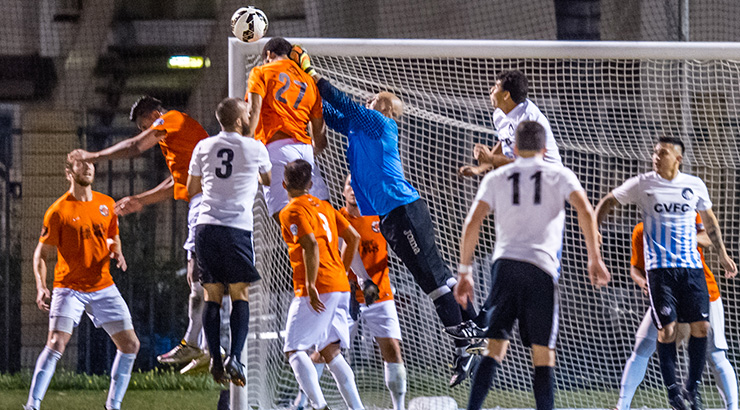
Diane Scavuzzo: What should clubs do to be successful and to make their presence known in the community?
Yan Skwara: First off, you need to build a small but effective staff. Running a team cannot be done by one person. You have to start with the staff. And at this level, unfortunately, a lot of teams are understaffed. We have found interns to be very helpful.
Then, secondly, you need to focus daily and weekly on identifying corporate sponsors to help finance operations and offset expenses.
Building a good product on the field is very important. Obviously, you need a good coach but most clubs understand the on field requirements better than what is necessary off the field.
Read: UPSL YAN SKWARA ON YOUTH SOCCER – WHAT’S RIGHT & WHAT’S WRONG





